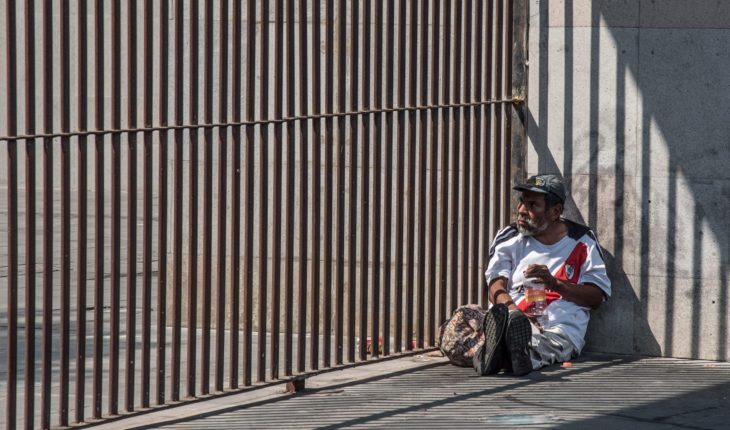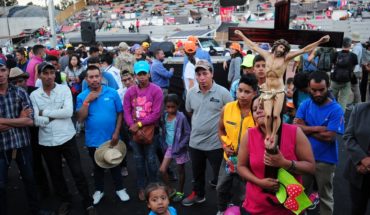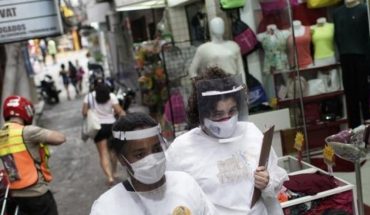inequality was the common factor in the discussions of the forum for peace organized by the President of France, Emmanuel Macron.
Edna Jaime Treviño, Director of Mexico evaluates and member of the Advisory Committee of the Forum, asserted that it had the expectation that talks and conferences had an emphasis on security issues, but did not.
“The approach, said, was in inequality as great illness of our times, compounded by globalization, which does not mean that it is bad, but that we are not preparing to make decisions and generate public policies that resolve the gaps of” inequality generated by globalization”.
The forum for the peace of Paris was organised by the President of France, Emmanuel Macron, with the intention of bringing together global actors to promote global governance, strengthening multilateralism and international cooperation.
The start of the work of the Forum began with the celebration of the 100th anniversary of the Armistice of the first world war, November 11, 2018. Once the commemoration took place, more than 60 heads of State, civil society organizations from different regions of the world, academic leaders and representatives of organizations such as United Nations, were involved in discussions and papers which led to reflections and proposals to pay for peace.
Edna Jaime was invited by the Organizing Committee of the Forum to be part of his Advisory Group. She, along with Renato Galvão Flôres, director of the unit of international intelligence at the Getulio Vargas Foundation, Rio de Janeiro, Brazil-based were only called Latin Americans.
At the end of the Forum, Edna Jaime felt that there was talk of inequality as a cause of tension, conflict and social decay. “There is inequality in income, access to power, the same power. Then, those who have more; “they have a more important role in the political system, even spoke of the economic power to capture political power, making it wider to inequality”.
inequality and technology
in their participation in the Conference, globalization is giving a shot in the footthe Secretary general of the Organization for cooperation and economic development (OECD), J I dare Angel Gurría, noted that economic gap between rich and poor has also grown because globalization has engendered a change that demands work specialized in communication and information technologies which requires skills and tools very specific, which is lacking in large sectors of the population.
Much of inequality, he insisted, comes from labour markets. There are situations that are as dramatic as those of the people in poverty who have a job and is not enough, need another and perhaps another one because they cannot achieve a decent and honest way of life.
If workers received training, if their level of training and preparation to scale, would not they suffer both the impact of the technological revolution. The work should be fair and decent to people.
For the also academic, Edna Jaime, the widening of the gap of inequality caused by technology has been faced better in those States that are institutionally strong. It is not clear, added, the widening of the gap, but those who have led it best are those States that have the capacity to collect taxes, distribute effectively and generate a minimum floor of access to educational rights and health. Only a strong State that generate good public policy and maintain autonomous before economic powers, can be paid to gaps of inequality to decline, he said.
When there is inequality, generated ‘leadership disconcerting than not to promote values universal that also here (in Paris) have been mentioned within the framework of the celebrations of the 70 years of the Universal Declaration of human rights. It is a commemoration on values which we share, that are reflected in institutional building, but there are leaders who are not aligned with these values, and origin is inequality”.
Pedro Sánchez, President of Spain, said during his speech at the first Forum of the peace of Paris, if one thinks in terms of the ideals of the French Revolution, liberty, equality and fraternity, that is needed in these times, is this last, because without it There will be a world of sustainable, equitable development and where it can mitigate the effects of climate change.
Without fraternity and multilateralism, he insisted, is impossible to combat the effects of migration – for example – because it requires that developed countries seek the growth of those developing and so its citizens do not have the need of go. “The wealth of some (in reference to developed countries) depends on also the wealth of others (in reference to developing countries), hence the importance of putting the focus on solidarity and brotherhood among us,” he said.
He is expected within a year a new edition of the forum for the peace of Paris. The Organizing Committee will convene new account heads of State and organizations around the world. In addition, the advances that have resulted in 10 projects that were selected to receive support from the Forum will be presented.
translated from Spanish: Inequality, detonator of conflict and weak Government, say leaders in Paris
November 15, 2018 |





